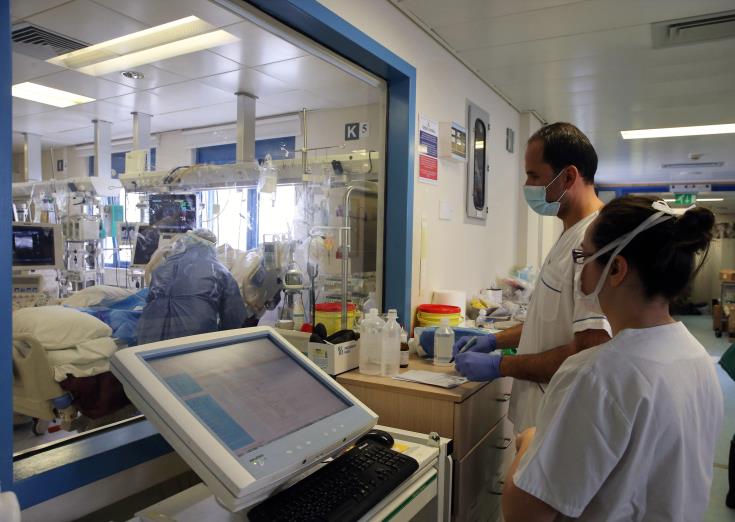Cyprus health authorities on Sunday confirmed seven new COVID-19 cases, after conducting 2,415 lab tests, proving the situation allows for easing of measures introduced to curb the outbreak.
The existing epidemiological data pave the way for easing restrictions in the coming days, said Health Ministry advisor Leontios Kostrikis.
He said it was now up to the political leadership to make the relevant decisions on how and when to come out of lockdown.
The total number of COVID-19 cases in the Republic rose to 817 on Sunday, that includes 10 located in the British Bases.
According to the Epidemiological Surveillance Unit, one positive case was found after conducting 1,047 tests in the program by the Ministry of Health to test 20,000 frontline workers.
Three people were found positive after testing 190 passengers returning to Cyprus from abroad.
Two more were detected from private tests while one more case was found positive from 282 random tests.
“After today’s encouraging results, a credible epidemiological picture is being formed, allowing us to reach the safe conclusion that we can now enter the next stage, the gradual lifting of restrictive measures,” said Kostrikis.
He said the Advisory Body deems that the existing data allows for the easing economic and social distancing restrictions in the next few days.
After expressing content about the course of events, Kostrikis cautioned that strict adherence to rules of personal hygiene and self-protection measures need to accompany any decision to lift measures.
Dr Marios Loizou of the Cyprus State Health Services Organisation said that according to data until, 18 people were hospitalized at Famagusta General Hospital, two of them at the ICU. All patients are generally stable.
He said that five patients remain intubated in various hospitals, while another four are at the ICU of Nicosia General Hospital without being intubated.
Their condition is critical but stable.
Loizou stressed finally the need to be alert to protect vulnerable groups.
“Our success until now in protecting those groups gave us the right to be proud as a society and the possibility we now have to proceed with the gradual lifting of measures.”










